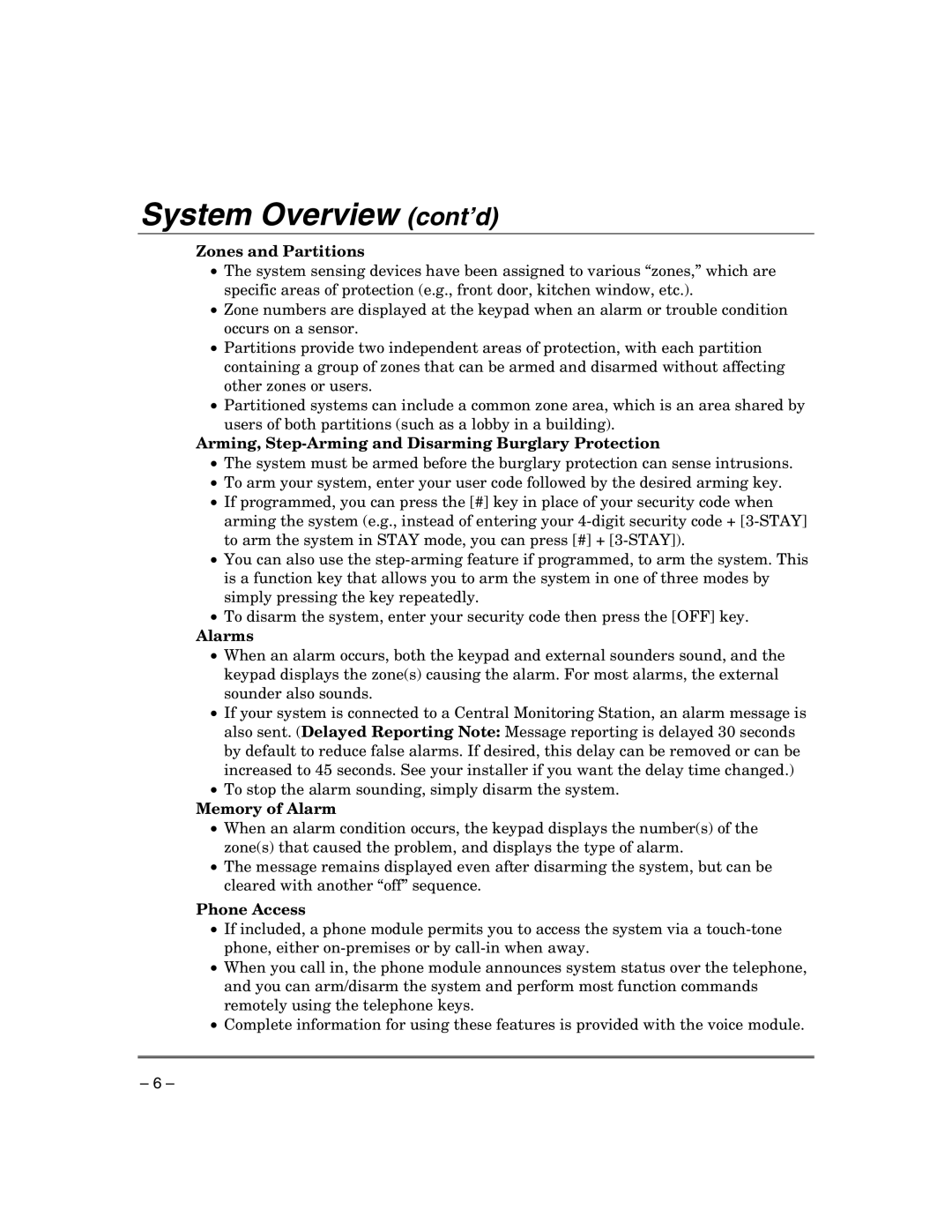
System Overview (cont’d)
Zones and Partitions
•The system sensing devices have been assigned to various “zones,” which are specific areas of protection (e.g., front door, kitchen window, etc.).
•Zone numbers are displayed at the keypad when an alarm or trouble condition occurs on a sensor.
•Partitions provide two independent areas of protection, with each partition containing a group of zones that can be armed and disarmed without affecting other zones or users.
•Partitioned systems can include a common zone area, which is an area shared by users of both partitions (such as a lobby in a building).
Arming, Step-Arming and Disarming Burglary Protection
•The system must be armed before the burglary protection can sense intrusions.
•To arm your system, enter your user code followed by the desired arming key.
•If programmed, you can press the [#] key in place of your security code when arming the system (e.g., instead of entering your
•You can also use the
•To disarm the system, enter your security code then press the [OFF] key.
Alarms
•When an alarm occurs, both the keypad and external sounders sound, and the keypad displays the zone(s) causing the alarm. For most alarms, the external sounder also sounds.
•If your system is connected to a Central Monitoring Station, an alarm message is also sent. (Delayed Reporting Note: Message reporting is delayed 30 seconds by default to reduce false alarms. If desired, this delay can be removed or can be increased to 45 seconds. See your installer if you want the delay time changed.)
•To stop the alarm sounding, simply disarm the system.
Memory of Alarm
•When an alarm condition occurs, the keypad displays the number(s) of the zone(s) that caused the problem, and displays the type of alarm.
•The message remains displayed even after disarming the system, but can be cleared with another “off” sequence.
Phone Access
•If included, a phone module permits you to access the system via a
•When you call in, the phone module announces system status over the telephone, and you can arm/disarm the system and perform most function commands remotely using the telephone keys.
•Complete information for using these features is provided with the voice module.
– 6 –
